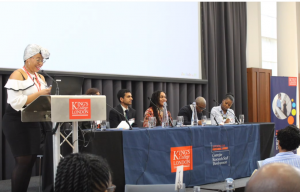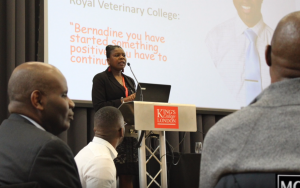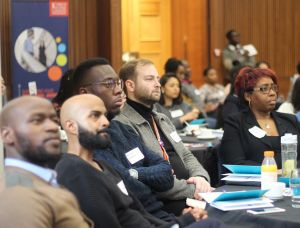A few months ago, we published the first blog in our Demystifying Leadership Series, in which Professor Candy Rowe chatted to us about what her role as Faculty Director of EDI had been like, to help potential replacements decide whether it was the leadership role for them.
And it worked!
We are pleased to introduce our new Faculty Director of EDI, Professor Simon Forrest! Have a read of his Q&A to get to know a bit more about him, why he applied for the role, and what he’s most looking forward to:
Tell us a bit about your background. What are your hobbies and interests outside of work?
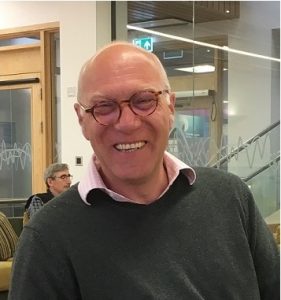
Like a lot of academic careers, mine sounds like a series of wise choices when I tell in from where I am now. But, in truth, it has largely been about a combination of luck, when opportunity has spoken to my passions.
I began as a professional musician and got very interested in the sociology of health because of the advent of HIV/Aids, and the way that changes in sexual attitudes, behaviours and culture that came about because of that, and the way they were represented in the ‘pop’ culture of which I was part. I met and got involved in very early community responses to HIV through peer education with young people, and the mobilisation of gay men and MSM. That evolved into 30 years of work on sex, sexualities, gender and sexual health.
I am still engaged in advocacy, which often feeds my research, but also some more sedate pastimes, such as bee-keeping.
How did you first become interested in EDI? What are some of the aspects of EDI you are most passionate about?
I can’t imagine how anyone can be involved in the social aspects of sex, sexualities, gender and health and not have EDI running through their work.
I have seen the way that public policy has failed people and also then worked to improve people’s lives. I have seen and, I hope, been part of influencing great positive changes in the recognition sexual diversity, in seeing that the greatest threats to people sexual health and wellbeing are often about failure to provide that and promote respect and equality. What I’ve learnt is EDI is about listening; hearing and making sure we give voice those who get left behind or are disadvantaged by social attitudes, policy or organisations – mobilising their potential to change things for the better for everyone.
What drew you to the position of Director of EDI for FMS?
It’s very simple – FMS is a natural champion of Equality, Diversity and Inclusion.
All our contributions are about making everyone’s lives better, healthier, and happier. We have the opportunity, especially because of the values of the NHS and our other stake-holders, to put that at the heart of what we do. Who wouldn’t want to be able to contribute to that?
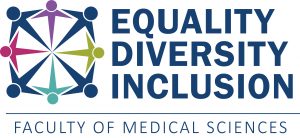 What has been your favourite thing about the role so far?
What has been your favourite thing about the role so far?
Finding my feet with the fantastic EDI team, both within FMS and across the University, hearing people being so honest about the challenges in their work and lives, and the energy right across the Faculty, from top to bottom, to effect real culture change so that it heartbeats with EDI.
What are the main things you hope to achieve in the role? Tell us what you’re most excited to get involved with?
To continue the amazing work done so far, and to see that recognised in further external recognition and accreditation.
I want to be an advocate, to empower, and mobilise the skills and expertise in the Faculty and our wider community, and to enjoy the debate, discussion, planning, and work we can do together.
What aspects of being FMS’ Director of EDI do you anticipate will be most challenging? What previous learning experiences do you think have helped prepare you to take on these challenges?
Universities are complex places and knowing how the system works and how to make the system work can be a challenge. I think I have had a lot of experience now and know something about we go about creating transparent and effective structures that support EDI.
What do you hope to learn through the role?
No day goes by when one doesn’t learn something about oneself and other people.
Universities are all about conversations and because I might see students or staff, do some engagement work with our community, and much more in a typical day, there’s always going to be a conversation out there which will make me think. It might be someone asking me a question I don’t know the answer to (that’s very common) or telling me something amazing about their lives that makes me stop and think.
Thank you so much to Simon for giving us a bit of insight into himself and how he’s feeling about his new role. We can’t wait to see all that you do as Faculty Director of EDI.
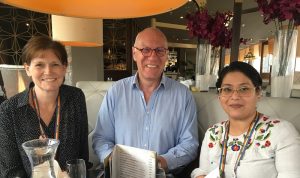


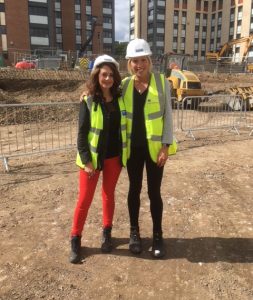
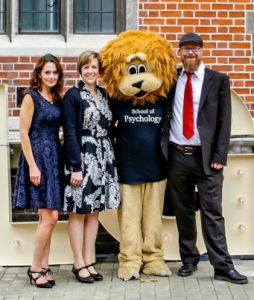
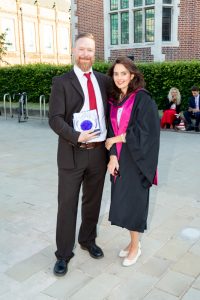 What advice would you give to your successor?
What advice would you give to your successor?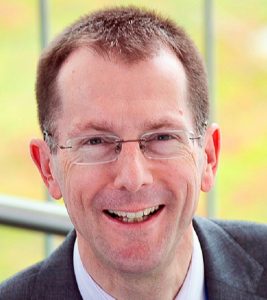
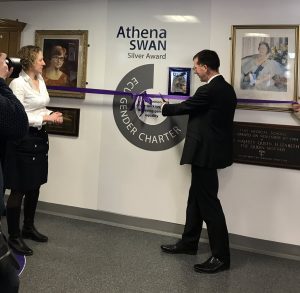
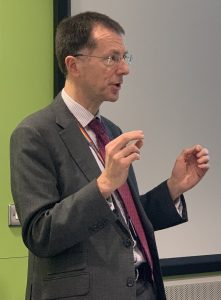
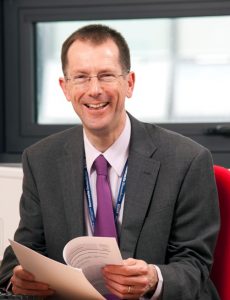 How to you balance the role with your research, hobbies and family?
How to you balance the role with your research, hobbies and family?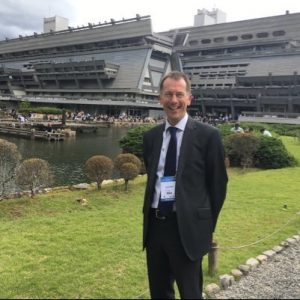
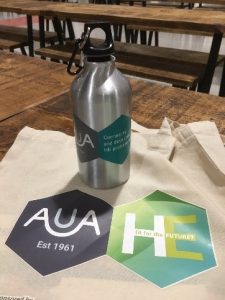
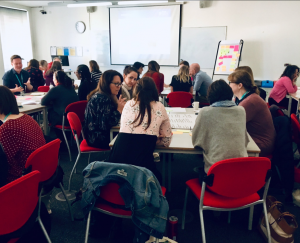 While I was disappointed that one of the sessions that I had signed up for was cancelled at short notice (‘Looking Behind the Label – Mental Health in the Workplace’), it was great to think outside the box in two sessions focusing on a positive workplace culture. One discussed the GROW model of coaching, while the other (fantastically titled ‘Yoga and the Hokey-Pokey’), focused on how teams can think creatively to enable solutions.
While I was disappointed that one of the sessions that I had signed up for was cancelled at short notice (‘Looking Behind the Label – Mental Health in the Workplace’), it was great to think outside the box in two sessions focusing on a positive workplace culture. One discussed the GROW model of coaching, while the other (fantastically titled ‘Yoga and the Hokey-Pokey’), focused on how teams can think creatively to enable solutions.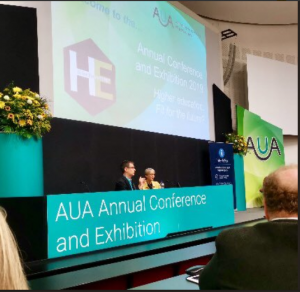
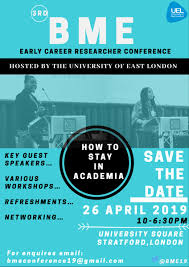
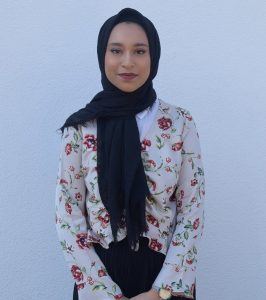
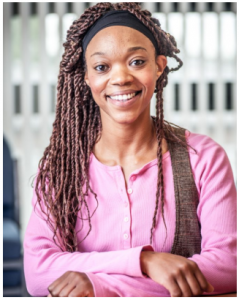 I was really impressed with the format of the conference. There were short, inspirational talks by various academics, describing their journeys and it was motivational to hear their insightful and inspirational guidance. All speakers gave honest accounts of their personal journeys, which was particularly humbling to hear. There was also workshops that addressed applying to and writing for fellowships, mentoring and sponsorship, fantastic tips and advice on networking, and the importance of wellbeing and maintaining work-life balance. These workshops provided supportive, engaging, and productive advice, all directly relevant to the everyday research environment.
I was really impressed with the format of the conference. There were short, inspirational talks by various academics, describing their journeys and it was motivational to hear their insightful and inspirational guidance. All speakers gave honest accounts of their personal journeys, which was particularly humbling to hear. There was also workshops that addressed applying to and writing for fellowships, mentoring and sponsorship, fantastic tips and advice on networking, and the importance of wellbeing and maintaining work-life balance. These workshops provided supportive, engaging, and productive advice, all directly relevant to the everyday research environment.